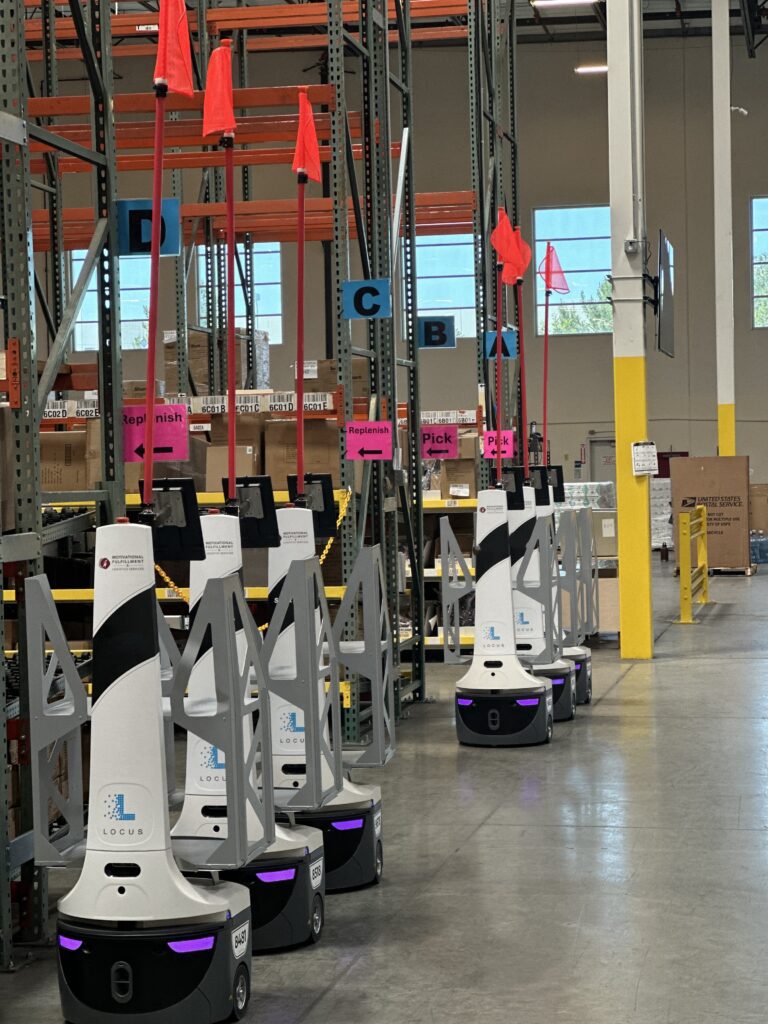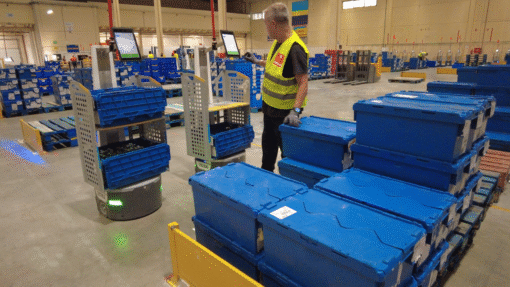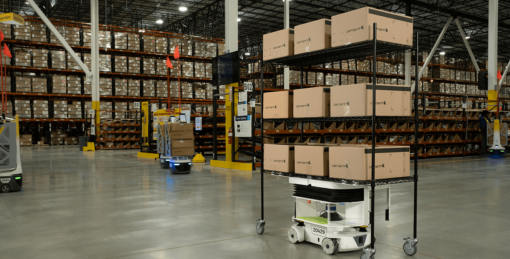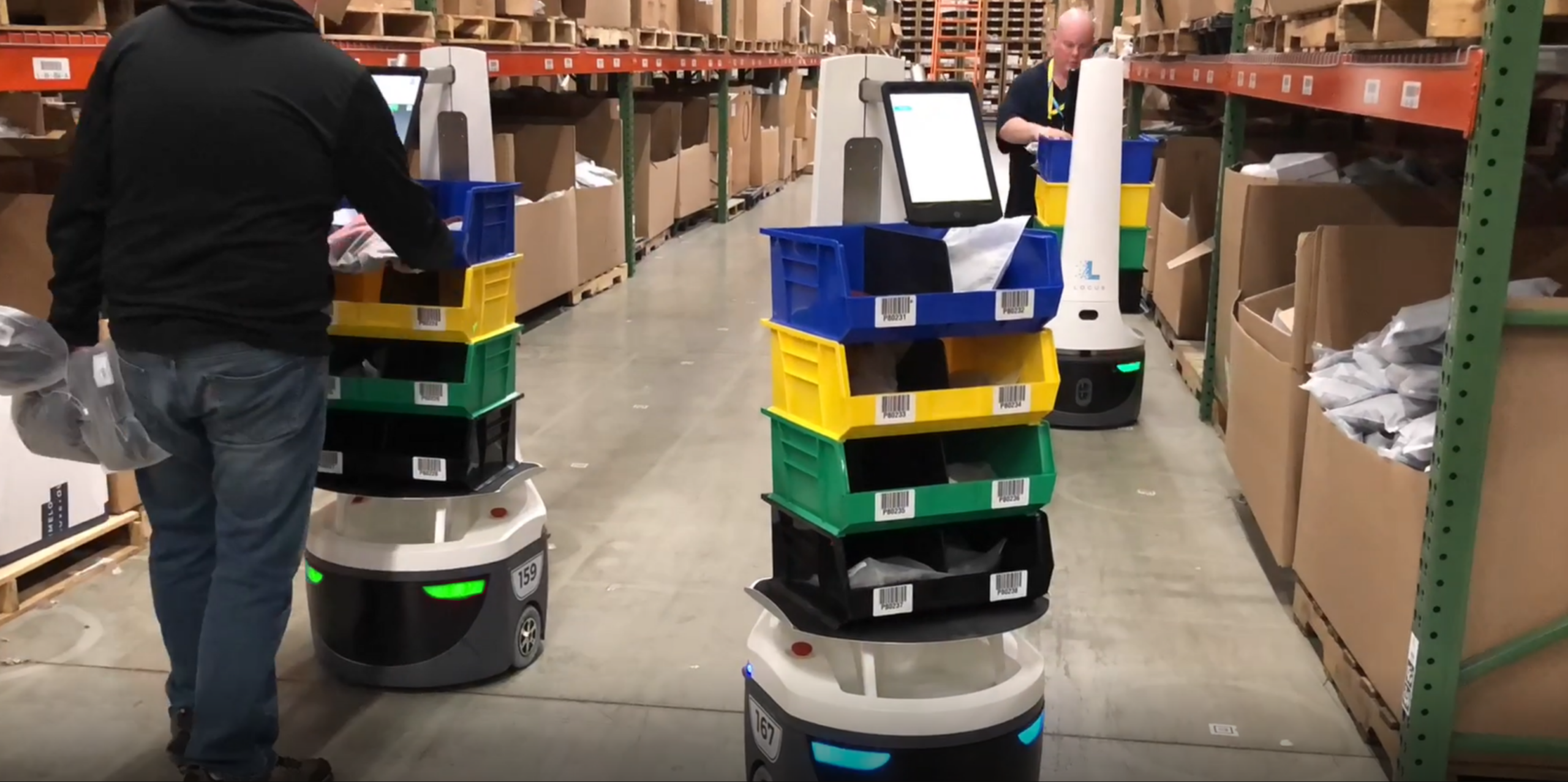WP: How to achieve 400 UPH with Locus Fast Pick
WP: How to achieve 400 UPH with Locus Fast Pick Download Now!
The Human Side of Warehouse Automation: A Conversation with Tony Altman
Mary Hart, Sr. Content Marketing Manager

When we talk about warehouse automation, the conversation often leans toward the technology of robots, software, data streams. But beneath all of that is something more human in the people who run these operations, who adapt to change, and who keep promises to customers every single day.
That was the thread running through my conversation with Tony Altman, President and CEO of Motivational Fulfillment & Logistics Services, on the latest episode of Warehouse Automation Matters. For nearly five decades, Motivational has grown by saying “yes” to customers and then following through. Altman shared how that mindset has shaped the company’s adoption of robotics, continuous improvement, and system flexibility and how each decision ultimately ties back to people.
This wasn’t a technical demo of automation or a case study in ROI. While those serve their purpose and are beneficial, this conversation was a deeper look at how leaders in our industry think about balancing innovation with the culture of trust and service that customers expect.
The Origins of a Human, Customer-First Philosophy
Altman’s story begins with family, as his father started Motivational Fulfillment over 48 years ago as a small, customer-centric operation. From the beginning, he trained the team to be a “yes company” but not at the expense of quality.
“If you say yes, you better deliver on that yes. Because if you don’t, you’re not going to have that customer or any customer for very long,” Altman said.
That philosophy has shaped how the company evolved. Altman himself worked nearly every role in the business, from loading containers to managing sales and HR, before becoming CEO. That experience, he said, gave him a perspective on both customer needs and employee realities.
Why Continuous Improvement Needs Structure
In logistics, continuous improvement is often used as shorthand for “always finding a better way.” But Altman explained that for Motivational, it became important to formalize the practice.
In 2023, the company hired a Vice President of Continuous Improvement to create an executive role specifically tasked with ensuring safety, quality, efficiency, and on-time delivery were constantly evaluated and enhanced.
“At Motivational, we’re big advocates for continuous improvement,” Altman said. “We’ve always worked to stay agile, efficient, innovative.”
The lesson for warehouse leaders is that improvement can’t just be a vague aspiration. It needs ownership, accountability, and a direct link back to the customer.
Automation as a Human Experience Strategy
When Motivational launched its Mississippi facility, the leadership team decided to embed automation from day one. Locus Robotics became a core part of the operation, and the results were immediate in faster picking rates, shorter training times, higher accuracy, and more throughput.
But what stood out most besides the productivity gains was the impact on employees.
“We see automation as a way to improve the employee experience, but not replacing our employees,” Altman explained.
He went on to describe how Locus Robots reduced physical strain, improved safety, and even created opportunities for career growth. Facilities with Locus saw higher morale, lower injury rates, and better retention.
Instead of treating automation as a cost-saving measure, Altman framed it as an investment in people. The result was technology adoption that employees embrace rather than resist.
Flexibility as a Competitive Advantage
Another recurring theme in the conversation was flexibility. Motivational built its own proprietary WMS and order management systems to ensure they could adapt quickly to customer needs.
Altman shared a striking comparison that one customer requested a system change from Motivational and another 3PL and Motivational completed the change in a week, at no cost. The other provider quoted six months and $80,000.
“We didn’t want to force our customers to fit into a box,” Altman said. “We wanted to offer flexibility and nimbleness… That’s been a huge competitive advantage for us in the market.”
For warehouse leaders, the takeaway is clear: unmatched flexibility isn’t just a technical capability. It’s a trust-builder with customers who need solutions now, not quarters down the road.
Automation Isn’t One-Size-Fits-All
Toward the end of our conversation, Altman offered advice for other 3PL leaders. His warning: don’t treat automation as a plug-and-play solution.
“Automation isn’t one size fits all,” he said. “Figure out what the customer’s needs are and then develop the solution to meet those needs instead of putting an automated solution in your warehouse and then trying to fit the customer into it.”
It’s a point worth repeating that true success comes not from chasing the shiniest technology, but from aligning warehouse automation with real customer problems.
Why This Conversation Matters
The story of Motivational Fulfillment is less about one company’s journey and more about how leaders can navigate the intersection of culture, technology, and customer service. Altman’s perspective reframes warehouse automation as:
- A driver of customer trust through flexibility
- A tool for improving the human workforce
- A discipline for continuous improvement grounded in accountability
For anyone evaluating automation, these aren’t just operational insights. They’re reminders that warehouse success is still a people business.



